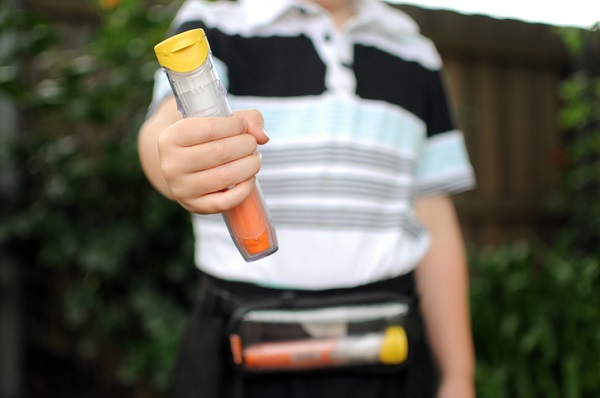
Across the country, many Canadians live with serious allergies capable of leading to anaphylaxis. This is an extreme allergic reaction that includes symptoms such as headaches, difficulty breathing, hives, and more. In some cases, it may occur at the same time as or lead to anaphylactic shock, which is a drop in blood pressure to dangerously low levels that makes it difficult for organs to receive blood. In all cases, a severe allergic reaction is a medical emergency.
Every year, approximately 3,500 Canadians will experience anaphylaxis. For the majority of those who do experience it, a nearby EpiPen quickly administered and the timely arrival of emergency health services will allow them to recover. However, each year approximately 12-15 people won’t have access to these options fast enough, and will die from their allergy.
Recently, EpiPens have become the centre of much discussion and controversy. Keep reading to learn more about why this is the case, and what it means for future professionals in pharmaceutical regulatory affairs.
What Is an EpiPen?
EpiPens are used to treat an allergic reaction through the injection of epinephrine. Once it enters the body, this chemical contracts the blood vessels and opens up the airways in the lungs. This helps to prevent a person from going into shock as they wait for an ambulance. EpiPens can be kept on hand by those who have a severe allergy or allergies caused by food, insect bites, drugs, or other allergens.

EpiPens are portable and easy to use
Recent Issues Surrounding EpiPens and What it Means for Regulatory Affairs
Over the last few years, EpiPens have been the centre of much controversy, and for several reasons. South of the border in the United States, Mylan, the company behind the EpiPen, gradually hiked the price of EpiPens over the span of nine years. The price of EpiPens during that time went from $94 (U.S.) to over $600 (U.S.). For many with a severe allergy, these huge price hikes made accessing the medication a much greater challenge, especially since EpiPens expire and need to be regularly replaced. It has lead to national and even international outcry, as well as several lawsuits.
Here in Canada, professionals working in regulatory affairs know that pricing regulations are much stricter. This has kept the price of EpiPens in Canada relatively stable at approximately $120. However, this is not to say that there haven’t been problems with these devices here either. For some time, EpiPens have been the only autoinjector sold in Canada. This means that any manufacturing problems or delays affect supplies nationwide. Currently, we are in the midst of an EpiPen shortage so severe that Canadians are being told to hang onto recently expired EpiPens, and to keep fewer EpiPens than they would normally.
For these reasons, both here in Canada and in the United States, generic options to the EpiPen and other competitors are being explored. In the United States Mylan, the company behind the EpiPen, produced a generic version of the product in 2016. In addition, the FDA has recently approved a generic autoinjector from Teva, another pharmaceutical company. Here in Canada, Health Canada has temporarily allowed for the import of the autoinjector Auvi-Q made by Kaléo. As those with careers in regulatory affairs know, these measures can help to alleviate the current shortage, as well as help to prevent future shortages from occurring again.
Are you interested in starting a pharmaceutical regulatory affairs career?
Contact AAPS for more information about our programs.



